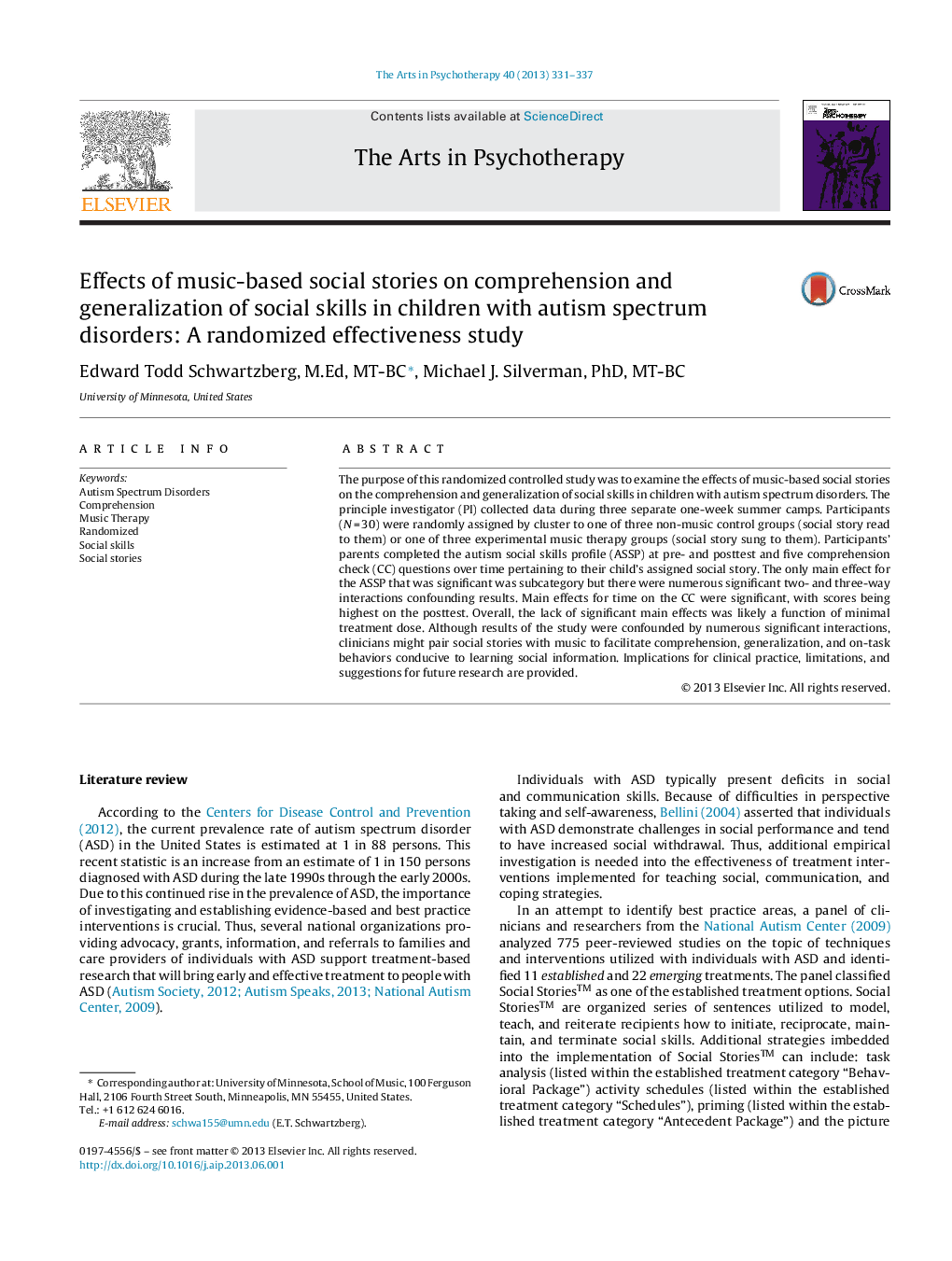| Article ID | Journal | Published Year | Pages | File Type |
|---|---|---|---|---|
| 343698 | The Arts in Psychotherapy | 2013 | 7 Pages |
•Participants were randomly assigned by cluster to one of three control or experimental groups.•Social stories were written based on the sub-scales of an established instrument.•Main effects tended to be not significant.•Numerous significant two- and three-way interactions may have confounded results.•Main effects for comprehension were significant, with scores highest at posttest.
The purpose of this randomized controlled study was to examine the effects of music-based social stories on the comprehension and generalization of social skills in children with autism spectrum disorders. The principle investigator (PI) collected data during three separate one-week summer camps. Participants (N = 30) were randomly assigned by cluster to one of three non-music control groups (social story read to them) or one of three experimental music therapy groups (social story sung to them). Participants’ parents completed the autism social skills profile (ASSP) at pre- and posttest and five comprehension check (CC) questions over time pertaining to their child's assigned social story. The only main effect for the ASSP that was significant was subcategory but there were numerous significant two- and three-way interactions confounding results. Main effects for time on the CC were significant, with scores being highest on the posttest. Overall, the lack of significant main effects was likely a function of minimal treatment dose. Although results of the study were confounded by numerous significant interactions, clinicians might pair social stories with music to facilitate comprehension, generalization, and on-task behaviors conducive to learning social information. Implications for clinical practice, limitations, and suggestions for future research are provided.
